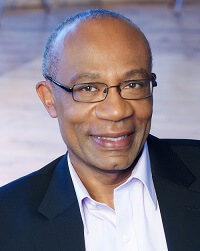Few people would disagree that Blacks and other non-whites are treated differently than whites by the criminal justice system. All the statistical data show that Blacks get harsher penalties, longer sentences and are over-represented in prisons .
Many people blame police for this disparity and they are partly right; but the average cop on the beat is just one part of a criminal justice system.
As important a role as police play in enforcing the law, it’s judges who interpret the law and hand out sentences. That’s why the findings of new research by a law professor about the racial and ethnic makeup of judges are so important.
Meritocracy is often used with a positive connotation: “If you work hard and pull yourself up by your bootstraps, you too can succeed.”
Rosemary Cairns Way, of the University of Ottawa, found a stunning lack of racial diversity among judges appointed to the bench by the Canadian government.
She found that between April 2012 and March 2014, of 94 appointments, only one non-white judge was selected. In the past five and a half years, the federal government has appointed only three non-white judges out of nearly 200.
It’s not that lawyers of colour aren’t available. In Ontario and British Columbia, for example, they represent up to 17 per cent of all lawyers. Yet, if a spokesperson for the justice minister is to be believed, those lawyers just aren’t good enough to be judges. She says the federal government is “guided foremost by the principles of merit and legal excellence in the appointment of judges…”
This response is both predictable and regrettable.
Pulling the “merit” card is the last refuge of those who believe Blacks and other people of colour don’t have the ability or credentials to do certain jobs or hold positions of authority.
In today’s stratified society, meritocracy – that it’s the best-qualified who gets selected – sounds great — in theory. In practice, it’s often a myth. Other factors often prove more powerful: connections and comfort-level are just two.
Meritocracy is often used with a positive connotation: “If you work hard and pull yourself up by your bootstraps, you too can succeed.”
However, when meritocracy first appeared in Michael Young’s book Rise of the Meritocracy in 1958, he envisioned a world in 2034 when society was ruled by people with a sense of entitlement while those at the bottom of the system were incapable of protecting themselves against the abuses of the “merit elite”.
As Young states, those at the bottom “… can easily become demoralized by being looked down on so woundingly by people who have done well for themselves … No underclass has ever been left as morally naked as that.”
Statistics Canada projects that by 2035 – one year later than Young’s fictional world – “visible minorities” in major Canadian cities will become “visible majorities.” This means major institutions — the courts, governments, etc. — should better reflect the demographics of all Canadians, if they are to be seen as credible and relevant.
Pulling the “merit” card is the last refuge of those who believe Blacks and other people of colour don’t have the ability or credentials to do certain jobs or hold positions of authority.
More than a decade ago in a documentary I did for CBC television about the criminal justice system in Ontario, a white defense lawyer said he made sure he made his Black witnesses appear “as white a possible” because he knows that white judges would be more “comfortable” with them. He tells his witnesses to dress and speak in a particular (white) way.
The notion that justice must be blind to be fair is a good one. However, the reality is — at least for some people in our society — justice is not blind. And now it seems the glare of “merit” is also blinding those who decide who one day will become judges.
Hamlin Grange is president and principal consultant with DiversiPro Inc. He is recognized as a subject matter expert in diversity, inclusion and intercultural competence development of teams and individuals. He has worked with organizations in a wide range of sectors, including law enforcement, social services, post secondary education and corporations.
This piece was re-published with permission from the author.
Hamlin Grange is the principal consultant with DiversiPro as well as a diversity and inclusion strategist.





